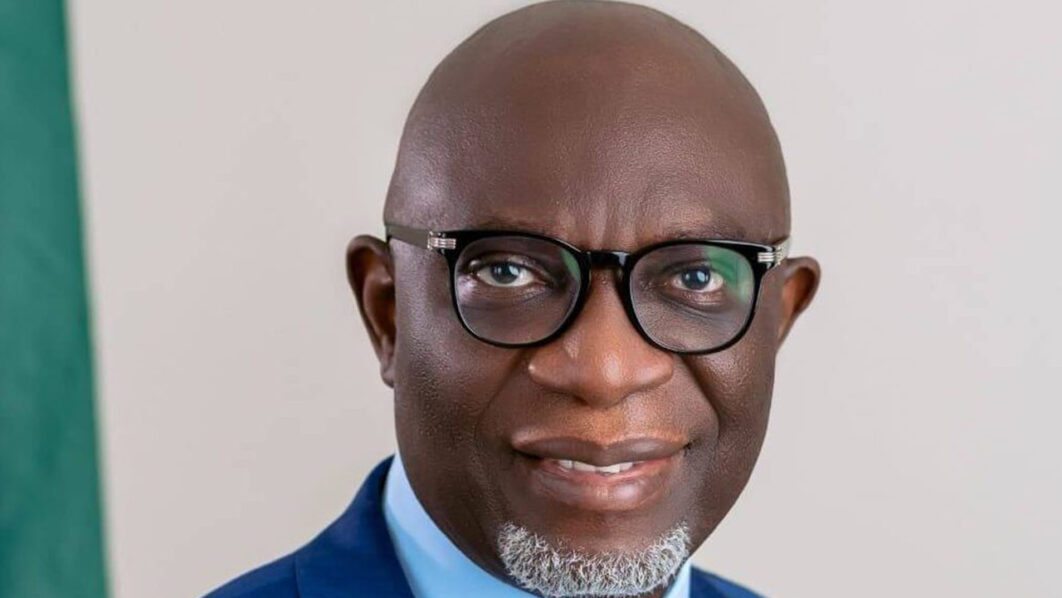
The Managing Director and CEO of Asset Management Corporation of Nigeria (AMCON), Gbenga Alade, has urged the judiciary to expedite the adjudication of asset-recovering cases within the 60 to 90-day timeframe stipulated by the Act.
This, he argued, is crucial to the corporation’s success in recovering billions of naira in outstanding debts between now and 2026 when the company is scheduled to wind down.
Speaking at a stakeholders’ retreat with the Senate Committee on Banking, Insurance and other Financial Institutions in Lagos at the weekend, Alade remarked that judicial support is crucial in addressing AMCON’s extensive backlog of over 3,000 cases.
“We have more than 3,000 cases in various courts around the country; from the court of first instance to the Supreme Court. We have continued to deepen our interaction with the leadership of these courts,” he said.
He explained that AMCON’s recovery efforts are increasingly reliant on judicial efficiency to resolve the cases, which he said has prevented it from disposing of any asset since July last year.
“We hope that AMCON cases would be adjudicated within the time limit enshrined in the AMCON Act,” he stated, noting that they are not seeking anything beyond what the law stipulates. He implored the lawmakers to continue to assist in raising awareness among government agencies about the risks associated with engaging with debtors (contractors) who have outstanding liabilities with AMCON.
Despite initial challenges, Alade reported significant progress in recoveries, with AMCON having recovered approximately N2.011 trillion to date. This figure comprises 44 per cent in cash recoveries and 56 per cent from the sale of proprietary assets, clawback, and repurchases among others.
The corporation has successfully disposed of assets valued at around N651 billion since its inception, contributing to job preservation and business rescues across Nigeria.
Alade added that AMCON paid N2.93 trillion to the Central Bank of Nigeria (CBN) between 2013 and 2023, including contributions to the sinking fund by deposit money banks and AMCON recoveries.
AMCON faces a dilemma, with opinions divided on its future. Some advocate for its winding down, while others argue for its continued existence given the persistent challenges in the financial sector.
Alade expressed concern that a premature closure of AMCON could lead to a resurgence of non-performing loans and potential bank failures. “One wonders if any lessons were learned from activities of the past,” he said. He said AMCON resolved to continue to pursue the recoveries of the debts owed by a few individuals who prefer to remain in courts than settle their debts.
“They believe that with the Corporation’s sunset date drawing closer, they would walk away free, and the debt will be added to the already overloaded domestic debt profile of the nation. We will not allow this to happen because taxpayers’ monies may be used to repay these debts.
“Only about 350 obligors make up more than 70 per cent of the entire debt profile of the Corporation. Some of these obligors still fly private jets, get government contracts and continue to live lavishly in the society.”
Chairman of the Senate Committee on Banking, Insurance, and other Financial Institutions, Adetokunbo Abiru, said the theme of the retreat provided an invaluable opportunity for senators to reflect on the critical role that AMCON has played in stabilizing the financial sector and to chart the path forward given its sunset clause.
He noted that the Corporation was established as an intervention agency to halt the drift caused by Non-Performing Loans (NPLs) in the banking industry with its adverse impact on savers and the entire economy.
“Admittedly, the setting up of AMCON has succeeded, to a large extent, in not only stabilizing the banking industry given that the purchase of Eligible Banks Assets (EBA) reinjected the much-needed liquidity into the banking system, but also helped in restoring confidence in the financial sector.
“Without any doubt, AMCON was established at a time of considerable turmoil, in the wake of the global financial crisis of 2008, to clean up the books of many ailing banks,” adding: “It can be said that as a result of AMCON’s interventions, thousands of jobs were saved as several banks were rescued from the brink of collapse,” he said. He noted that they must accept the reality that AMCON was not designed to be a permanent fixture in the country’s financial landscape.
“I am aware that the AMCON Amendment Act of 2021 extended the life of AMCON for another five years although it provides that the current tenor may be extended by a resolution of the National Assembly. So, we now stand at a pivotal moment where we must transition beyond AMCON as it is nearly impossible for the Corporation to recover substantial loans by 2026 when it is expected to wind down,” he noted.



